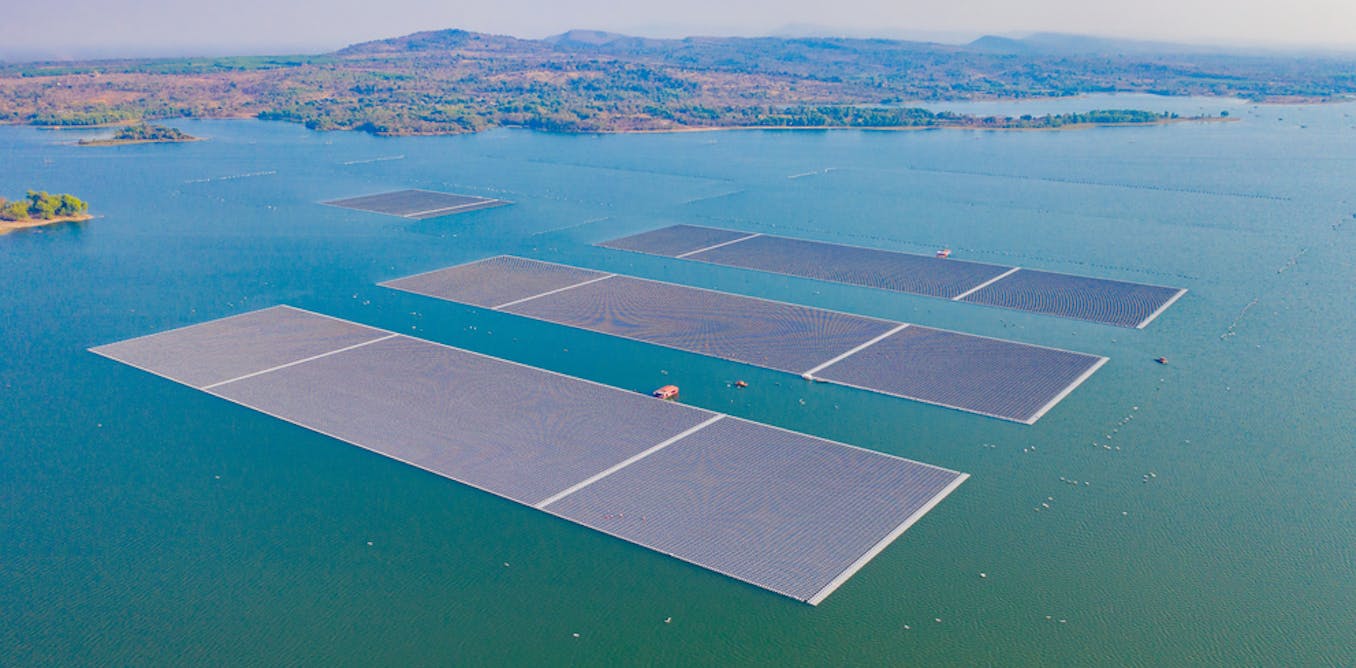‘Limitless’ energy: how floating solar panels near the equator could power future population hotspots::New research shows densely populated countries in Southeast Asia and West Africa could harvest effectively unlimited energy from solar panels floating on calm tropical seas near the equator.



Nuclear power plants have a massive footprint. For example in Australia they’re planning to setup a new nuclear waste disposal facility with a forecast budget of half a trillion US Dollars and it will be full in 70 years time - they’ll have to build a new one somewhere else after that.
That nuclear waste site will be radioactive for millions of years. The land will never be able to be used for basically anything, ever.
If you covered just that nuclear waste facility with solar panels, it would provide a massive amount of power. Enough to cover the day time power needs of a small country.
Solar panels aren’t a “zany” idea. In fact one of the reasons it’s being explored is because it would reduce evaporation. Power generation is often almost an afterthought. The panels also don’t have to be ugly - in fact there are prototypes that are invisible. They just look like ordinary glass, and don’t cost much more than glass either.
Half a trillion dollars over seventy years is nothing. How large is the waste site compared to the habitable surface? A few square kilometers is nothing.
The power needs of a small country is also essentially nothing over a seventy year span.
Nuclear energy is not ideal but it beats the hell out of coal plants, and it gives us a bridge to something sustainable. Solar has its own drawbacks and no nation is going to maintain a bunch of floating panels out in the ocean.
Putting them on the ocean is certainly a zany idea. Salt. Water. Storms. Electronics. Brilliant.
And no that is not how solar panels work. Solar panels only work when sunlight is directly on them. Their peak electrical output is always when the sun is directly over them. Thats why solar farms are built in massive flat areas and the panels are mounted on rotating motor powered stands so they can angle the panels directly at the sun to get the most out of them. But still, sun goes down and bam youre at 0 electrical output. Leading to the need for very long lasting power storage facilities to adequately store power to be dispensed at night. Also, solar panels and very large capacity batteries capable of holding charges for extended periods use a LOT of precious metals. Of which we have very little. And which have massive environmental impacts when we mine them.
Photovoltaic technology has gotten much better than it used to be, but even then it’s still not as much power as you seem to think. Modern nuclear plants can average outputs around a gigawatt. It depends on the plant. Some gen 4 nuclear reactors are anticipated to produce over a gigawatt per reactor core. Its also safer and much more efficient than it’s ever been. All that nuclear waste will also probably be recycled, and significantly less of it will be produced as our technology continues to advance. Youre also acting as though we just chuck a bunch of uranium in a hole and cover it with some dirt and then just leave it. The entire process is secure and must pass a whole host of safety standards including with regards to the environment. And some of that waste as I said will probably be usable at some point in the future for other things. To say we just throw it in there and it cataclysmically ruins everything is just no true.
We use too much power as is. And solar panels are not that great for the environment when you look at their broader impact. A whole host of other sustainable options exist, each with their own merits and environmental impacts. None of them produces anywhere near as much power as a nuclear plant. None of them meet the same emissions standards as a nuclear plant does when accounting for resource acquisition and fabrication. Nuclear power has had its fair share of major disasters and scandals, but fossil fuels have killed hundreds of millions of people. They kill millions every year. And their impact may even just kill humanity outright. Nuclear energy is the only realistic option if we don’t drastically overhaul how we produce and consume electricity as a society (which we should do either way).